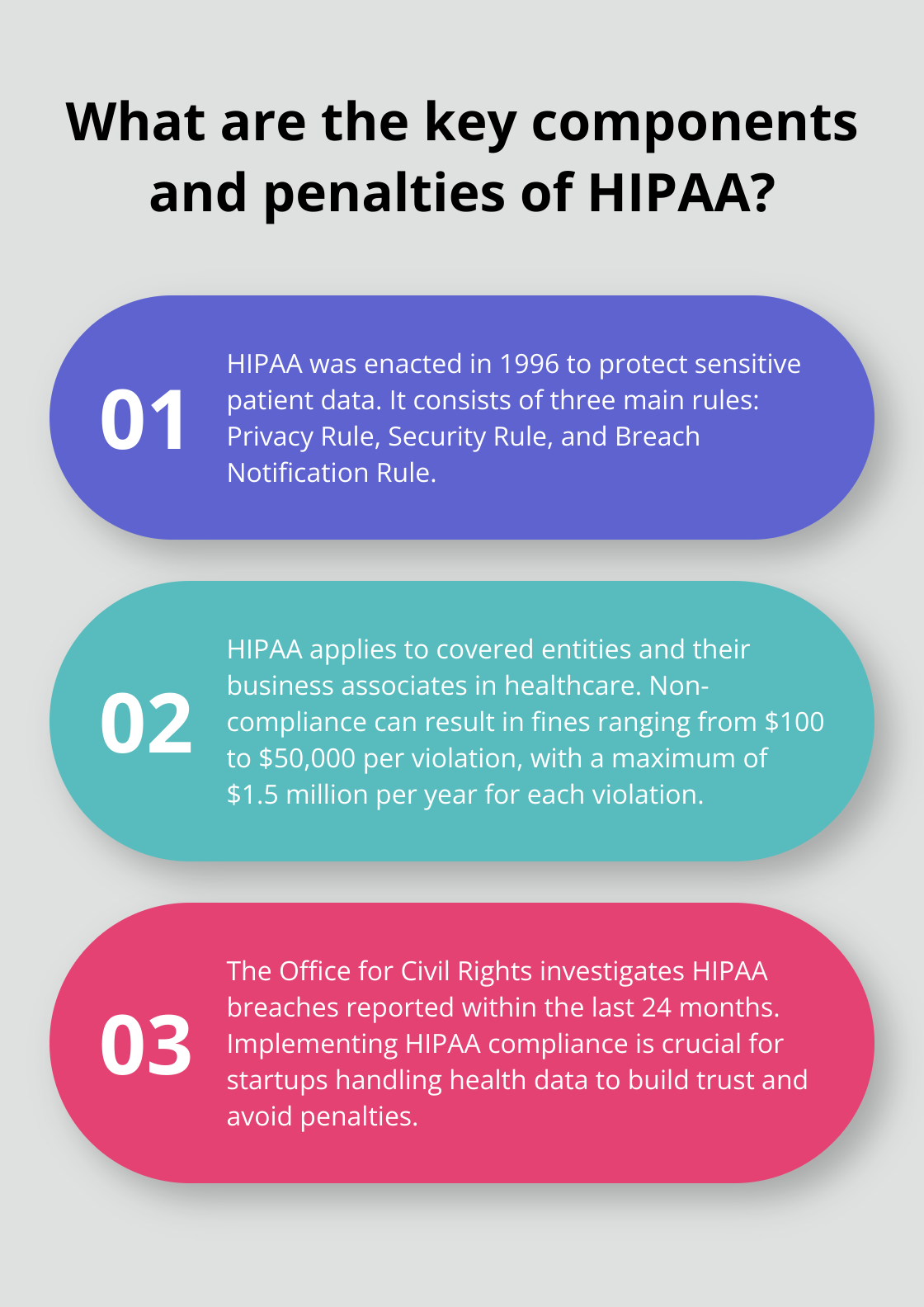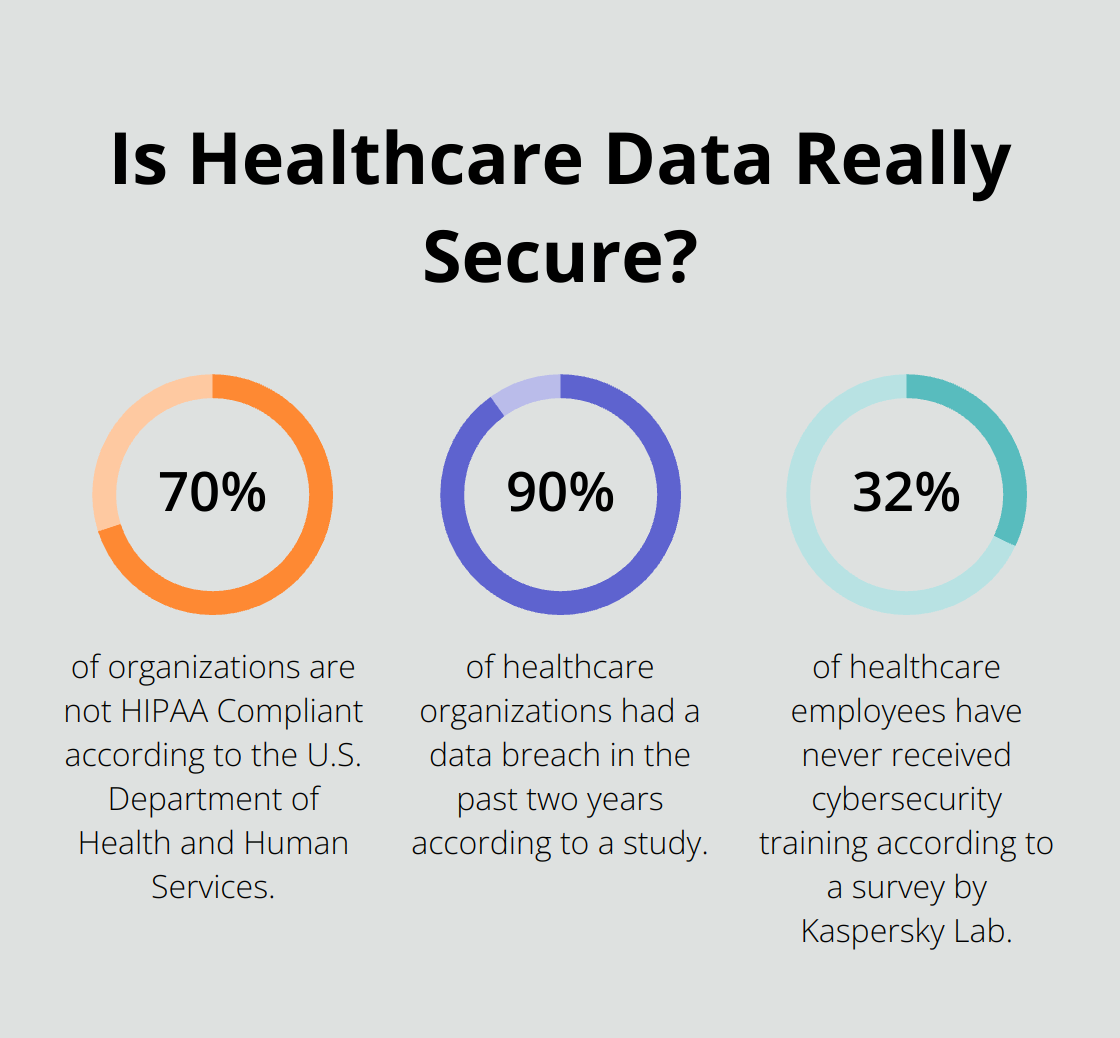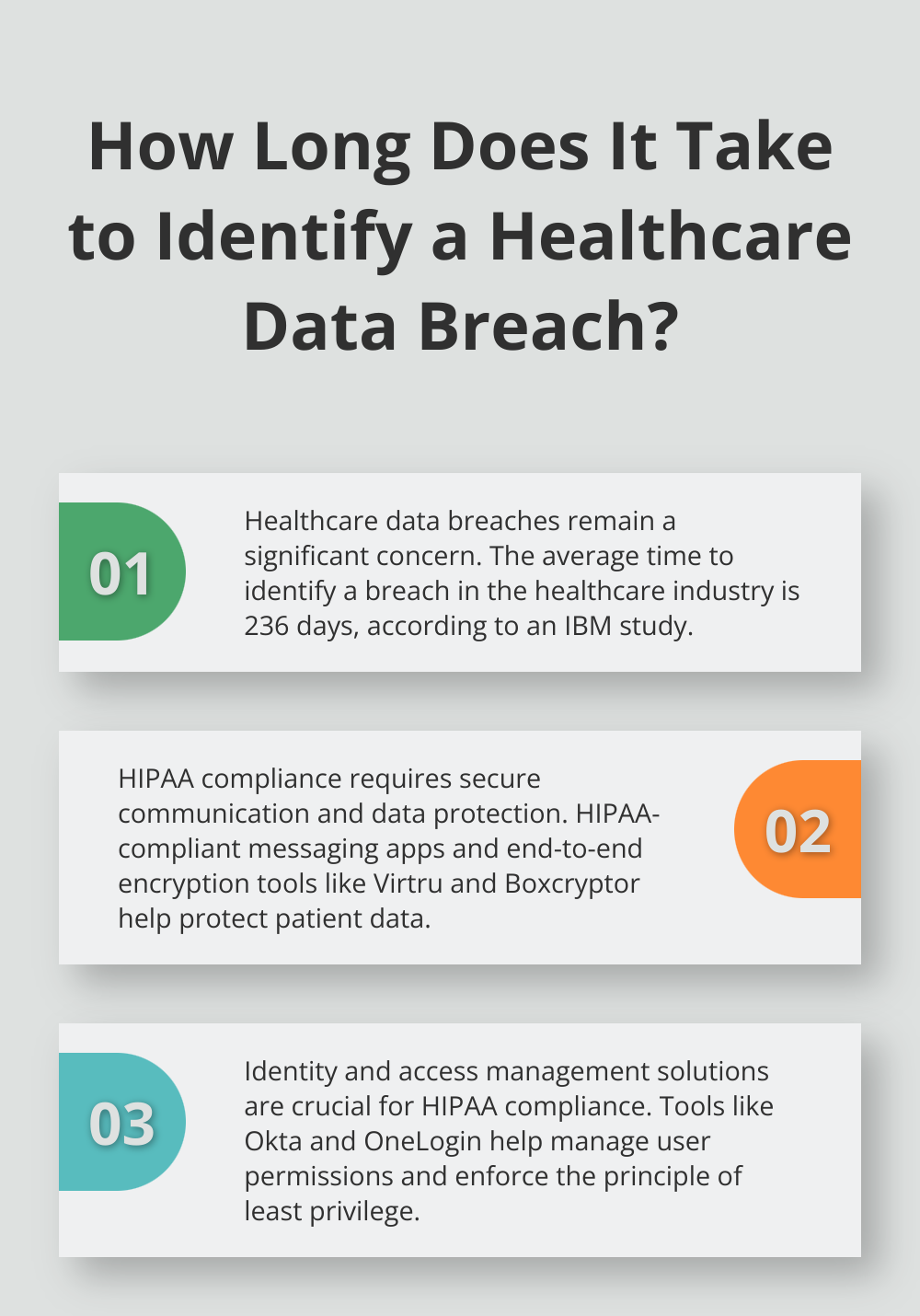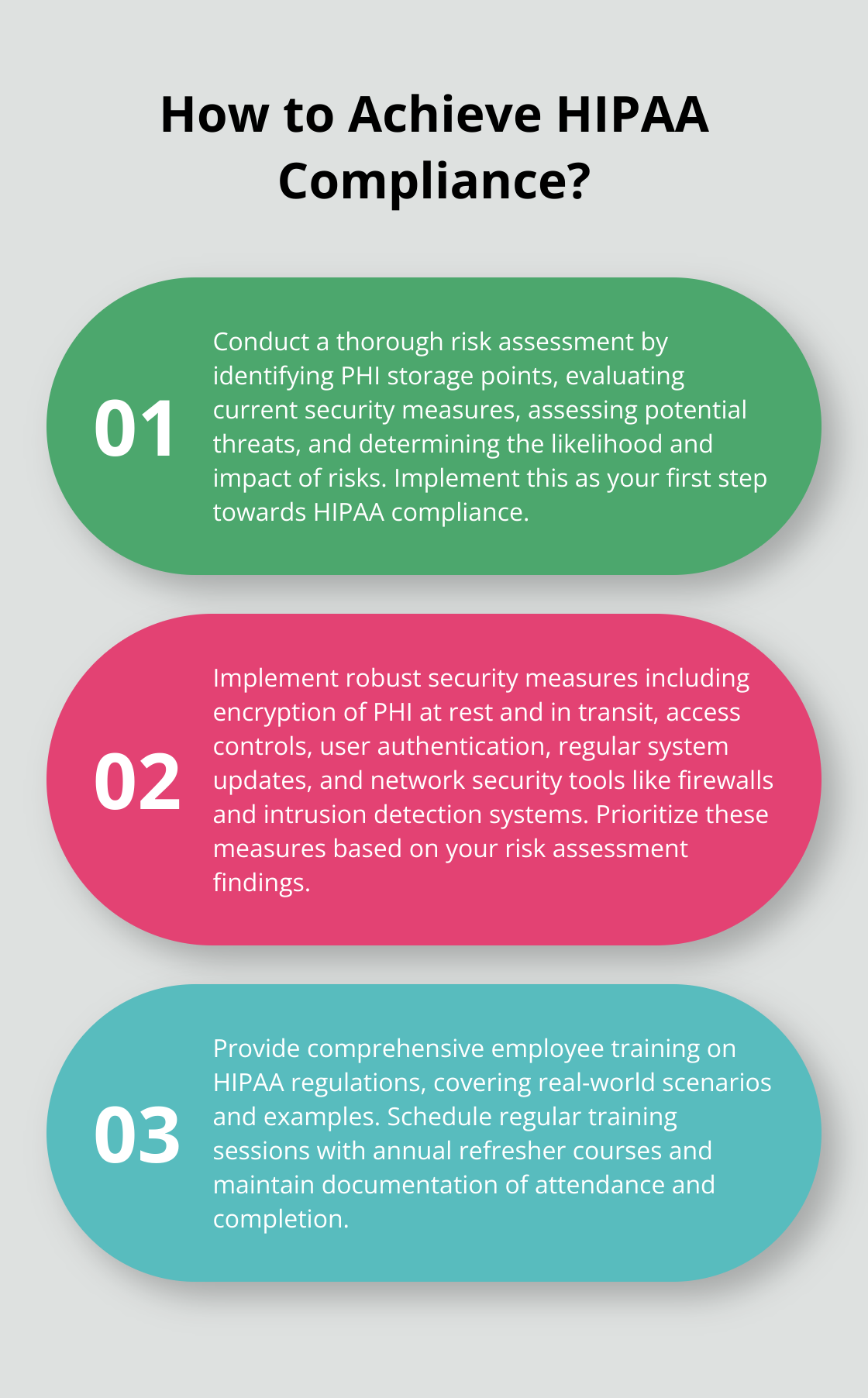HIPAA compliance for startups is a critical aspect of building trust and protecting sensitive health information. At ScriberJoy, we understand the challenges new companies face when navigating these complex regulations.
This comprehensive guide will walk you through the essential steps, tools, and technologies needed to achieve and maintain HIPAA compliance. We’ll cover everything from risk assessments to employee training, helping your startup build a solid foundation for data protection and regulatory adherence.
What is HIPAA and Why Does It Matter?
HIPAA, the Health Insurance Portability and Accountability Act, stands as a federal law that protects sensitive patient data. Enacted in 1996, HIPAA has become the foundation of healthcare privacy and security in the United States.

For startups in the healthcare sector, HIPAA compliance is not just a legal requirement-it’s a business imperative. Non-compliance can lead to severe penalties, with fines ranging from $100 to $50,000 per violation (up to a maximum of $1.5 million per year for each violation).
The Three Pillars of HIPAA
HIPAA consists of three main rules:
- The Privacy Rule: This rule establishes national standards for the protection of individuals’ medical records and other personal health information. It requires appropriate safeguards to protect the privacy of personal health information and sets limits on the uses and disclosures of such information without patient authorization.
- The Security Rule: This rule sets national standards to protect electronic personal health information created, received, used, or maintained by a covered entity. It mandates appropriate administrative, physical, and technical safeguards to ensure the confidentiality, integrity, and security of electronic protected health information.
- The Breach Notification Rule: This rule requires covered entities and their business associates to notify patients, the Secretary of Health and Human Services, and in some cases, the media, following a breach of unsecured protected health information.
Who Needs to Comply?
HIPAA applies to covered entities and their business associates. Covered entities include health plans, healthcare providers, and healthcare clearinghouses. Business associates are entities that perform certain functions or activities involving the use or disclosure of protected health information on behalf of, or provide services to, a covered entity.
For startups, it’s essential to determine whether they fall into either of these categories. If a company deals with protected health information in any way-whether developing a healthcare app, providing telemedicine services, or offering data analytics for healthcare providers-it likely needs to comply with HIPAA.
The Impact of Non-Compliance
The Office for Civil Rights maintains a list of all breaches reported within the last 24 months that are currently under investigation. This underscores the importance of robust HIPAA compliance measures for startups handling sensitive health data.
Implementing HIPAA compliance from the start can save a startup significant time, money, and reputation in the long run. It’s not just about avoiding penalties-it’s about building trust with users and partners in the healthcare industry.
The Role of Technology in HIPAA Compliance
As we move into the digital age, technology plays an increasingly important role in HIPAA compliance. From secure communication platforms to encryption software, the right tools can make compliance more manageable and effective. In the next section, we’ll explore the essential steps startups need to take to achieve HIPAA compliance, including the implementation of these technological solutions.
How to Implement HIPAA Compliance
Conduct a Thorough Risk Assessment
The first step in HIPAA compliance requires a comprehensive risk assessment. This process identifies potential vulnerabilities in your systems and processes that could lead to unauthorized access, use, disclosure, modification, or destruction of protected health information (PHI).

A typical risk assessment includes:
- Identification of PHI storage, reception, maintenance, or transmission points
- Evaluation of current security measures
- Assessment of potential threats and vulnerabilities
- Determination of the likelihood and impact of potential risks
According to the U.S. Department of Health and Human Services, approximately 70% of organizations are not HIPAA Compliant. This oversight can lead to significant vulnerabilities and potential HIPAA violations.
Implement Robust Security Measures
Based on the risk assessment findings, startups must implement appropriate security measures. These should address the identified vulnerabilities and align with HIPAA’s administrative, physical, and technical safeguards.
Key security measures include:
- Encryption of PHI (both at rest and in transit)
- Access controls and user authentication
- Regular system updates and patch management
- Network security tools (e.g., firewalls and intrusion detection systems)
Nearly 90 percent of healthcare organizations represented in a study had a data breach in the past two years, highlighting the importance of strong security measures.
Develop and Enforce Comprehensive Policies
Creating clear, detailed policies and procedures is essential for HIPAA compliance. These documents should outline how your startup handles PHI, responds to potential breaches, and maintains ongoing compliance.
Essential policies include:
- Privacy and security policies
- Incident response plan
- Business associate agreements
- Employee sanctions policy
Regular review and updates of these policies ensure they remain relevant and effective. The Office for Civil Rights reports that inadequate policies and procedures are a common cause of HIPAA violations.
Provide Thorough Employee Training
Employee training forms a critical component of HIPAA compliance. All staff members who have access to PHI must understand HIPAA regulations and their role in maintaining compliance.
Effective training programs should:
- Cover all aspects of HIPAA regulations
- Include real-world scenarios and examples
- Occur regularly, with annual refresher courses
- Document attendance and completion
A survey by Kaspersky Lab revealed that 32% of healthcare employees have never received cybersecurity training, indicating a significant gap in HIPAA compliance efforts.
The implementation of these steps may seem challenging, but they protect sensitive health information and help avoid costly penalties. Startups should consider leveraging specialized compliance software or consulting with HIPAA experts to ensure they meet all requirements effectively.
In the next section, we’ll explore the various tools and technologies that can support your startup’s journey towards HIPAA compliance, making the process more manageable and efficient.
Essential Tools for HIPAA Compliance
Secure Communication Platforms
HIPAA compliance demands secure communication. HIPAA-compliant messaging apps protect patient data and enhance healthcare communication. These tools enable healthcare providers to share patient information securely, which reduces the risk of data breaches.
Encryption and Access Control
Encryption forms a cornerstone of HIPAA compliance. Tools like Virtru and Boxcryptor provide end-to-end encryption for emails, files, and cloud storage. These solutions ensure that data remains unreadable to unauthorized parties, even if intercepted.

Access control systems play an equally important role. Identity and access management (IAM) solutions such as Okta and OneLogin help startups manage user permissions and enforce the principle of least privilege. Data breaches in healthcare remain a significant concern, which underscores the importance of robust access controls.
Audit Trails and Monitoring
HIPAA requires covered entities to maintain detailed logs of PHI access and usage. Tools like Splunk and LogRhythm provide comprehensive audit trail capabilities, which allow startups to track who accessed what data and when. These solutions also offer real-time monitoring and alerts for suspicious activities.
An IBM study found that the average time to identify a breach in the healthcare industry is 236 days. The implementation of effective monitoring tools can significantly reduce this timeframe and minimize potential damage.
HIPAA-Compliant Cloud Storage
As healthcare data increasingly moves to the cloud, HIPAA-compliant storage solutions have become essential. Providers like Google Cloud Healthcare API and Amazon Web Services (AWS) offer robust, compliant storage options. These platforms ensure data security and provide scalability for growing startups.
It’s important to note that while these tools are powerful, they do not serve as a silver bullet for HIPAA compliance. Startups must still implement proper policies and procedures, and ensure staff receive training in their use. However, when used correctly, these technologies can significantly enhance a startup’s ability to protect sensitive health information and maintain HIPAA compliance.
For medical transcription needs, ScriberJoy offers a secure and HIPAA-compliant solution. Our software incorporates encryption and access controls to help healthcare providers protect patient information while streamlining their documentation processes.
Final Thoughts
HIPAA compliance for startups is a strategic imperative that shapes the future of healthcare ventures. It protects sensitive patient information and builds trust with clients, partners, and investors. Startups must conduct risk assessments, implement security measures, develop clear policies, and provide thorough employee training to achieve compliance.

Technology plays a vital role in maintaining HIPAA compliance. Secure communication platforms, encryption software, and compliant cloud storage solutions streamline efforts. However, technology alone is insufficient; it must be combined with robust policies and a security-aware culture.
ScriberJoy understands the challenges startups face in achieving HIPAA compliance. Our medical transcription software supports healthcare providers in maintaining accurate and secure documentation while adhering to HIPAA standards. We offer a solution that ensures compliance and enhances efficiency in medical documentation (through AI technology and human verification).

Leave a Reply
You must be logged in to post a comment.